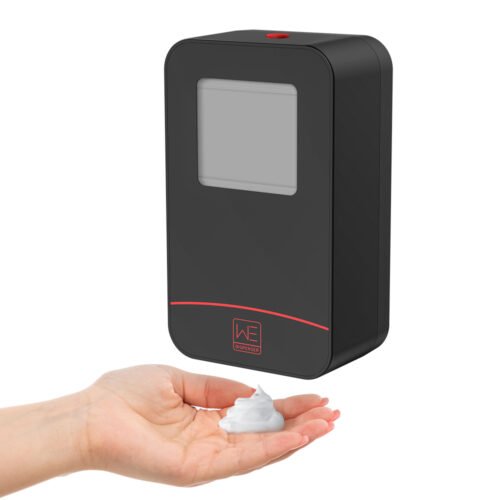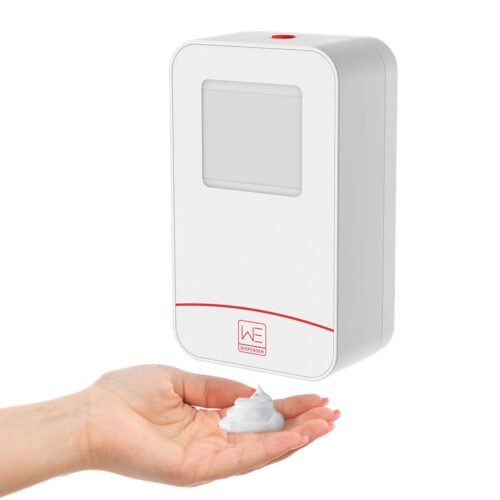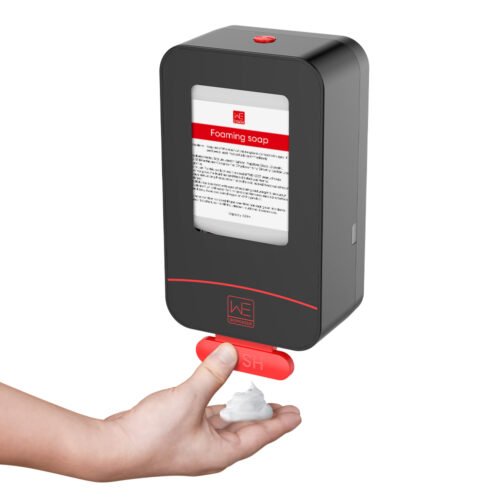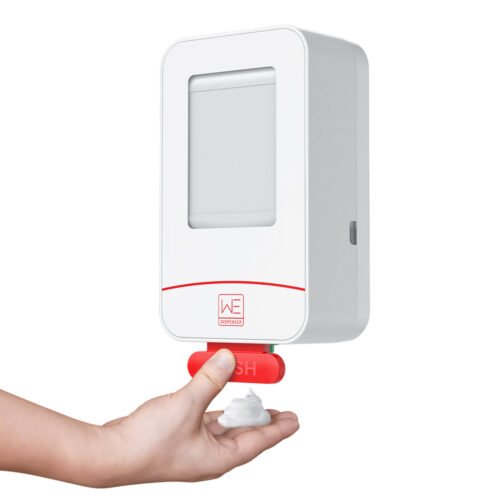Stay Safe, Stay Clean: A Complete Guide to Hand Washing in Food Handling
Food safety is critical in the food industry, where contamination risks can harm public health. Proper hand washing is key to prevent the spread of germs, making it essential for food handlers.Knowing when to wash your hands can prevent food contamination. It is important to know where and how to clean your hands. This helps create a safe food handling environment. This guide offers a roadmap to maintain hygiene, protect consumers, and meet regulations.
Why Hand Washing Matters
Effective hand cleaning stops germs like Salmonella and E. coli, which cause food contamination. When will washing your hands prevent food contamination? It’s most effective at critical moments—before handling food, after touching unclean surfaces, or following restroom use.
Whether preparing foods or handling raw meat, clean hands are the first defense. It’s more than a quick rinse; follow specific handwashing steps to ensure hand hygiene food safety.
How to Clean Hands Properly
Follow these handwashing steps for thorough cleaning:
- Rinse your hands under lukewarm water to wet them, as warm water loosens dirt.
- Use a soap dispenser to apply soap. Rub your hands for at least 20 seconds to wash them in food service. Scrub between your fingers, under your nails, and up to your wrists or elbows. This depends on your uniform sleeves. Rinse your hands well to remove soap and dirt. Use a steady flow of water.
- Use a paper towel or air dryer to dry your hands. Turn off the faucet with a towel or your elbow to avoid getting germs again.
- Apply hand sanitizers, rub hands for 20–30 seconds until dry, covering all skin.


How long should a food service worker wash their hands? The recommended time is 20–40 seconds, focusing on thorough scrubbing. How often should food handlers wash their hands? At least every 30 minutes in clean zones, or more based on tasks.
When Must Food Handlers Clean Their Hands?
Food handlers should wash their hands to maintain hand hygiene food safety:
- After restroom use or when handlers wash their hands after contamination.
- Before which task must a food handler wash their hands? Before food preparation, handling raw meat, or touching food-contact surfaces.
- After touching unclean surfaces, handling waste, or every 2 hours during work.
- When must food handlers wash their hands? Immediately after contamination (e.g., sneezing) or as part of personal hygiene before shifts.
These steps prevent the spread of pathogens and ensure food safety. Supervisors must monitor compliance during high-risk tasks.
Where Can a Food Worker Clean Their Hands?
Hand washing sinks should be near production zones, restrooms, or clean area entries for easy access. Where is it acceptable for food handlers to wash hands? Only wash your hands in designated sinks. These sinks should have soap, hand sanitizers, and drying options. Do not wash your hands in food preparation sinks to avoid cross-contamination.
Best Practices for Food Handlers
Food handlers should follow these practices:
- Food handlers must scrub hands for how long? At least 20 seconds, plus 10–20 seconds for nails if needed.
- Use hand sanitizers for quick disinfection between tasks, but follow with a full hand cleaning when possible.
- Wear gloves if hands have cuts, but clean and disinfect hands if contamination occurs.
- Train staff to spot hand hygiene food safety risks, like touching items without proper cleaning.
Visual cues like posters can reinforce habits across shifts.
Maintaining a Safe Environment
Beyond hand cleaning, food handlers wash equipment and surfaces with soap and 75% alcohol. Keep handwashing sink areas clean, enforce personal hygiene—like wearing uniforms and covering hair—and conduct monthly training to ensure food handlers understand how often should food handlers wash their hands. Install air dryer systems, stock single use paper towel supplies, and provide gloves and hand sanitizers at workstations.
The Role of Training and Supervision
Training must cover how long to wash hands in food service, how long should a food service worker wash their hands, and when will washing your hands prevent food contamination. Supervisors should check hand cleanliness, ensure before which task must a food handler wash their hands is followed, and address non-compliance to foster a food safety culture.
Conclusion
Proper hand cleaning and hand hygiene food safety are vital in food handling. By knowing when will washing your hands prevent food contamination, how often should food handlers wash their hands, and before which task must a food handler wash their hands, food handlers can prevent the spread of contamination, ensuring safe products. Stay diligent, maintain personal hygiene, and clean hands before and after key tasks for a safer food industry.




